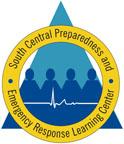
Psychological First Aid: Building Resiliency for "Us" and "Them"
Course Description:
The importance of Psychological First Aid for victims of a disaster as well as first responders has been well established. From the attacks of 9/11 to Hurricane Katrina, the mental impact of a disaster often has far reaching and lasting effects. While more attention is being paid to the psychological needs of victims and first responders, the fact remains that often times during an actual crisis, those needs are not addressed or are not emphasized based on the surrounding physical and environmental needs. Promoting an environment of safety, calm, connectedness, self-efficacy, empowerment and hope is the main goal of providing Psychological First Aid. That’s why basic training in the foundations of Psychological First Aid is critical for anyone who may be called to respond in a disaster situation. This program will help you to better recognize and manage the basic symptoms of psychological distress and give you the tools you need to apply basic Psychological First Aid to children, the elderly, the general population and yourself.
Target Audience
Academic Faculty/Staff, Federal Government Employees, State Government Employees, Local Government Employees, Non-Government Employees and Students
Learning Objectives
- Define Psychological First Aid
- Discuss the basic principles of Psychological First Aid
- Demonstrate the intervention strategies of Psychological First Aid
- Describe individual response patterns to disaster stress
- Examine strategies for recognizing and self-managing disaster stress
Instructor:

Joshua Klapow, PhD
Department of Health Care Organization and Policy
South Central Center for Public Health Preparedness
University of Alabama at Birmingham
Joshua C. Klapow is a clinical psychologist and Associate Professor in the Department of Health Care Organization and Policy (School of Public Health, UAB) and an investigator with the South Central Center for Public Health Preparedness (SCCPHP). Dr. Klapow’s research focuses on the role of behavioral science in health care delivery systems. He is a certified Disaster Mental Health Specialist and serves as the disaster mental health expert for the SCCPHP. He teaches courses in disaster communication and speaks frequently on the topic of self-management for first responders during crises.
Available Credit
- 2.00 Participation/CETulane Professional and Continuing Education (PaCE) awards 2.00 hour(s) of credit for completing Psychological First Aid: Building Resiliency for "Us" and "Them"
Price
Required Hardware/software
System Settings
This course is designed to work most effectively if your computer and internet connection meet certain minimal requirements. This course can be accessed using a Windows 10 PC or a Mac with High Sierra1, Mojave, or Catalina. Pop-up blockers should be disabled when viewing the course. Internet Explorer 11 (for Windows 10), or the current version of Google Chrome, Mozilla Firefox, or Apple Safari (for Windows 10 and or Mac) is required. Many of our courses require Java and JavaScript enabled.
Links to External Websites
Links to websites outside this course will open in a new window or tab. Some browsers may minimize the course window. If this occurs, maximize the course window to return to the course.
Adobe Acrobat Reader (for desktops and laptops)
Adobe Acrobat Reader is required to access some documents in this course. If you need to download a free copy of Acrobat Reader, click here.
Internet Connection Speed
A minimum download speed of 1.5 Mbps is recommended for an optimal experience, which is commonly the speed associated with a basic DSL or a cellular/satellite connection. A faster connection, such as cable or fiber service, with further enhance your online experience. A Wi-Fi connection is generally acceptable, but it is dependent upon one of the two services mentioned above. You can check your internet connection speed at http://www.speedtest.net/.

 Facebook
Facebook X
X LinkedIn
LinkedIn Forward
Forward